

Africa Conference on Child Protection in Travel and Tourism
Moving forward from Recommendations to Commitments and Action
7 May 2018 | Durban, South Africa
1. Background
In June 2018, an International Summit on Child Protection in Travel and Tourism will be hosted by the Government of Colombia, in collaboration with the World Travel and Tourism Council (WTTC), ECPAT International and other stakeholders. The event will explore accelerated actions for implementation of the Recommendations of the Global Study on Sexual Exploitation of Children in Travel and Tourism (SECTT), and provide a roadmap to address this worldwide challenge. The Global Study was developed in cooperation with 67 partners worldwide (including UNWTO, Interpol and UNICEF). The Study has 46 sector-specific Recommendations for various stakeholders including the private sector (such as travel and tourism companies, the ICT industry and companies whose staff members travel for business). The Recommendations fall under five different intervention areas: awareness raising, prevention, reporting, ending impunity and access to justice, care and recovery and they are aligned to the realisation of the Sustainable Development Goals (SDGs) – a number of which relate to child protection and sustainable tourism. The Study was guided by a High-Level Taskforce and informed by detailed studies from every region and several countries, as well as contributions from experts and children. It presents the most updated picture of the problem of the sexual exploitation of children in travel and tourism, including in Africa and its Recommendations are key for improving private sector responses to prevent and combat this crime. Its findings confirm that no region is untouched by this challenge and no country is ‘immune’.
2. Rationale for the Conference
Two years after the launch of the Global Study, the need for coordinated efforts to ensure systemic translation of commitments into action cannot be over emphasised. This has been called for at various meetings including, at a Conference on Combatting Sexual Exploitation of Children in Travel and Tourism (SECTT), held in South Africa, in June 2017, and at the ‘Transition Meeting’ for the Global Study, in July 2017. At both meetings, key stakeholders as well as partners of the Global Study called for coordinated action for combatting SECTT and committed to concrete actions against
a call for a Regional Conference on Child Protection in Travel and Tourism was made by the then Chairperson of the UNWTO Commission for Africa.
In September 2017, the UNWTO adopted the text for a Framework Convention on Ethics in Tourism, which is a binding instrument with provisions on child protection and obliges States Parties to enforce at national level once they ratify it upon its entry into force. As States and the private sector seek to promote Sustainable Tourism for Development, children’s right to protection from violence and exploitation should be at the heart of all actions within the framework of ethical and responsible business practices. The private sector is a key stakeholder in ensuring that effective mechanisms are put into place for tourism to thrive sustainably, without subjecting children to any form of exploitation. Thus, there is a need to continuously promote and facilitate the implementation of the Global Study Recommendations to ensure that child protection remains in the tourism agenda. Various stakeholders in the region have already taken steps in child protection or are already in the process of doing so. These include the Africa Airlines Association (AFRAA), airline companies (such as South African Airways, Rwanda Air, Ethiopian Airlines, Kenya Airways), ACCOR Hotels in Africa and Fair Trade and Travel (FTT). Globally, major hotel and travel companies have been standard-bearers in the application of The Code of Conduct for the protection of SECTT. At the South Africa Conference, children in travel and tourism, such as Carlson Wagonlit Travels, AccorHotels, Hilton and TUI. A number of companies, including well-known brands such as Marriott, Uber USA and American Airlines have acknowledged the gravity of the problem and have also decided to join The Code. In view of these developments, and as a build-up to the International Summit, regional conferences on child protection in travel and tourism will be held. In Africa, the event will be hosted prior to the Africa Travel Indaba, which brings together the private sector from across Africa.
3. Objectives of the Conference
The main objective of the Conference is to expand and strengthen political will and actions in protecting children in travel and tourism based on the Recommendations of the Global Study on SECTT, as a regional contribution towards achieving the SDGs.
The Conference will therefore have the following sub-objectives:
a. To facilitate high-level dialogue with representatives of the tourism industry to enhance responsible business practices in protecting children in travel and tourism.
b. To share promising practices by leading travel and tourism companies in Africa with the view of
providing a regional contribution to the International Summit on Child Protection in Travel and
Tourism that will result in formulating global commitments.
c. To enhance regional cooperation to ensure child protection in travel and tourism.
Format of the Conference
It is envisioned that the Conference will be multi-sectoral and organised in partnership and collaboration of key stakeholders in the travel and tourism industry such as the UNWTO Commission for Africa, Tourism Ministries, African regional entities, UN agencies, private sector representatives and CSOs.
The format of the conference will comprise keynote speeches by high-level representatives of Tourism Ministries and travel and tourism industry. There will be panel discussions and dialogue by key stakeholders to share their practices and commitment towards child protection in travel and tourism. The Conference is scheduled to coincide with the African Travel Indaba to maximise and build on the growing commitments of Tourism Ministries towards sustainable and responsible tourism, as well as to access wide participation of the travel and tourism industry at the event.
The conference is expected to adopt a Private Sector Commitment to Child Protection in Travel and Tourism in Africa, which will be presented to the UNWTO Commission for Africa’s annual conference and the International Summit on Child Protection in Travel and Tourism, both of which will be held in June 2018 in Nigeria and Colombia, respectively.
5. Participants
The Conference is expected to attract 100 participants, drawn primarily from African governments, the African Union, Regional Economic Commissions (RECs), the private sector (including hotels, airline companies, travel agencies and tour operators, taxi companies, ICT companies and banks), police forces, UN agencies, INGOs, CSOs, the media and individual experts.
6. Date and Host Country
The Conference will be held on 7 May 2018 in Durban, South Africa, to coincide with the Africa Travel Indaba.
7. Contacts
For more information, please contact:
Ms Violet Odala, Specialist on SECTT, Africa
ECPAT International. Email: [email protected]

UNWTO Secretary General meets President of Azerbaijan
The Secretary-General of the World Tourism Organization (UNWTO), Zurab Pololikashvili met H.E. Mr. Ilham Aliyev, President of Republic of Azerbaijan to discuss the development of the tourism sector in the country and how to further strengthen cooperation between Azerbaijan and UNWTO.
The following issues were addressed during the meeting: the 10th Anniversary of the Baku Process, the impressive growth of international arrivals to Azerbaijan which peaked at +20% in 2017; the support of UNWTO to Azerbaijan in the implementation of investment projects, visa facilitation, open skies policy, the reinforcement of cooperation within the UNWTO Executive Council and UNWTO assistance to the country in the areas of innovation and education.
“In 2017, Azerbaijan saw international tourist arrivals grow by an impressive 20%. This enormous growth is the result of supportive policies on issues such as visas and investment, government commitment and leadership. I congratulate Azerbaijan for this success, which is far above the global average growth for 2017 of 7% in the world and look forward to strengthening our already solid cooperation” said the Secretary-General.
During his official visit, the Secretary-General also met Mr Abulfas Garayev, Minister of Culture and Tourism of the Republic of Azerbaijan, to discuss overall cooperation opportunities with UNWTO.
In the coming days, Mr Pololikashvili will open the 17th Azerbaijan International Travel and Tourism Fair and address the Azerbaijan Tourism and Management University (ATMU).

PATA appoints Trevor Weltman as Chief of Staff
BANGKOK, March 29, 2018 — The Pacific Asia Travel Association (PATA) has appointed Mr. Trevor Weltman as Chief of Staff effective April 2, 2018. Reporting to PATA CEO Dr. Mario Hardy, he will be responsible for planning, managing, coordinating and executing the Association’s various activities.
Dr. Hardy said, “It gives me great pleasure to welcome Trevor to the PATA family. I have known him for more than two years and during that time I have witnessed how passionate he is when involved in any project. He is a master planner and project manager and I believe he will be a great asset to the Association as well as a great mentor to many of the staff.”
Mr. Weltman has over 10 years of experience in Asia between China, India, and Vietnam. Prior to PATA, he was the Director of Sales and Marketing for HR consulting firm Lee Hecht Harrison Vietnam, and was also the Chief Marketing Officer for Triip.me, a venture-backed impact travel company present in 98 countries and over 650 cities around the world.
“Having collaborated with PATA on a few Human Capital Development initiatives over the last two years, I am excited to join the organisation in a full-time capacity,” said Mr. Weltman. “I have high confidence in PATA’s outstanding international team and believe fully in the leadership and vision of Dr. Hardy. Given the organisation’s demonstrated history of positive impact across the Asia Pacific region and the world, it is an honour to be able to help further PATA’s mission as the new Chief of Staff.”
After receiving his degree in Asian Studies from the University of Michigan, Mr. Weltman began his career at Google where he worked as an Account Strategist and mindset and management trainer. In addition to sales and marketing, he has over eight years of training experience, having led courses in marketing, personal development and meditation around the world in both Mandarin and English. He currently lives with his wife and two children in Vietnam and will relocate to Thailand in September this year.

UNWTO chief meets Prime Minister of Kazakhstan to strengthen cooperation
The Secretary-General of the World Tourism Organization (UNWTO), Mr Zurab Pololikashvili, paid an official visit to Kazakhstan where he discussed with national authorities the Kazakh Tourism Strategy 2030.
Mr Pololikashvili met the Prime Minister, H.E. Mr. Bakytzhan Sagintayev, to discuss the development of the tourism sector in the country and how to further strengthen cooperation between Kazakhstan and UNWTO. The following issues were addressed during the meeting: support in the implementation of investment projects, trainings for tour guides, reinforcement of cooperation within the UNWTO Silk Road Programme and UNWTO assistance to Kazakhstan in marketing and communication.
During the visit, the Secretary General met Mr Muhamediuly Arystanbek, Minister of Culture and Sports of the Republic of Kazakhstan to discuss the Tourism Strategy 2030. Mr Pololikashvili also visited the Museum of Future Energy established following Kazakhstan hosting of Expo 2017 Astana on the Future of Energy.
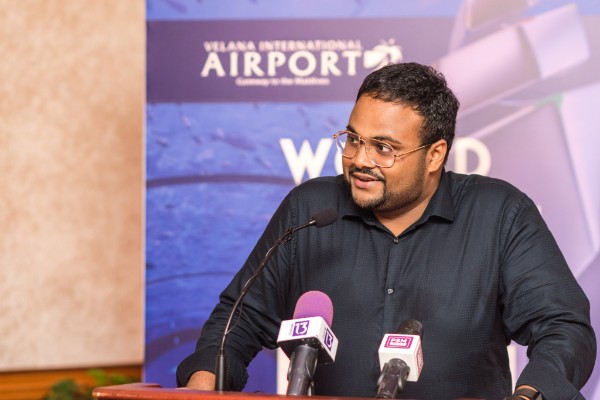
MATATO President Abdulla Ghiyas named 2018 PATA Face of the Future
BANGKOK, March 28, 2018 — Abdulla Ghiyas, President of the Maldives Association of Travel Agents and Tour Operators (MATATO) – one of the most active NGOs in the Maldives dedicated to fostering and promoting the sub industry of local travel agents, is today named as the 2018 PATA Face of the Future. This is the most prestigious honour open to young tourism professionals in the Asia Pacific region.
Dr Mario Hardy, CEO of the Pacific Asia Travel Association (PATA), said, “I would like to congratulate Abdulla on winning the 2018 PATA Face of the Future award. His clear commitment to the responsible development of travel and tourism in the Asia Pacific region is highlighted by his more than 10 years of service with MATATO and his many other activities and partnerships in the industry. In addition, his unique experience and insights will be a welcome addition to the Executive Board.”
As the 2018 PATA Face of the Future, Abdulla will have extensive exposure at the PATA Annual Summit 2018 from May 17-20 in Gangneung, Korea (ROK). He will be one of the speakers at the PATA Youth Symposium, be interviewed by BBC World News Presenter & Producer Sharanjit Leyl at the one-day conference and be one of the debaters at the UNWTO/PATA Leaders Debate. Abdulla will also be invited to join the 2018/2019 PATA Executive Board as a non-voting member and observer.
“I am truly overwhelmed and humbled to have been recognised with the prestigious PATA Face of the Future award. This award is for the hard-working team at MATATO and Inner Maldives Holidays, and every dreamer out there for believing that there is always room for thinking bigger, pushing limits and imagining the impossible,” said Abdulla. “Today we are living in an era of ever evolving challenges and changes. The role of youth and students across the globe is being redefined and I believe younger generations can play a vital role in travel and tourism. I look forward to working together with PATA and other travel industry stakeholders to further the role of youth and inspire them in joining this movement.”
Abdulla is a young energetic disrupter in the Maldivian tourism industry, who has changed the tourism landscape in the last few years by giving a voice to all Small Medium Enterprises in the industry.
MATATO is today considered the leading NGO in the Maldives with the association engaged in various activities such as advocacy and lobbying, training and workshops, fam trips, loan schemes via different financial institutions, recognition programs such as Awards, travel conferences and forums, publications and much more. The association last year organised destination stands and road shows, exhibiting brand Maldives in 14 countries around the world.
Abdulla is also a serial entrepreneur engaged in leading travel businesses and startups. He is the Deputy Managing Director of Inner Maldives Holidays, one of the largest inbound and outbound travel agency in Maldives. He is also a Director for Ace Travels Maldives and Spence Maldives, which are joint ventures with Sri Lankan blue chip conglomerate Aitken Spence PLC. Having 14 years of experience in the travel and tourism industry, Abdulla was the youngest Board Director of the Maldives Monetary Authority (MMA) from 2014 to 2017. He was also named by the Junior Chamber International (JCI) Maldives as one of the Ten Outstanding Young Persons in Maldives in 2010 for his role in business turnaround in Inner Maldives Holiday. Abdulla also contributes to the Consulate of the Republic of Seychelles to the Maldives as the Deputy.
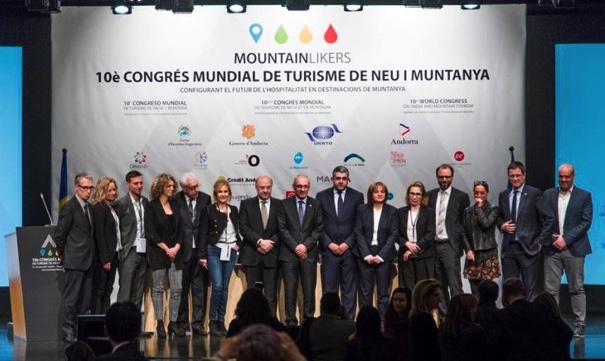
Snow and Mountain Tourism faces the challenge of adapting to change
Madrid, Spain, 27 March 2018 – The 10th World Congress on Snow and Mountain Tourism (Andorra, 21-23 March 2018) highlighted the need to adapt tourism accommodation to the expectations of today’s customers and to increase the quality of the traveller’s experience, while identifying knowledge management and hospitality culture as keys to success.
Organized jointly by the seven communes of the Principality, the Government of Andorra and the World Tourism Organization (UNWTO), this Congress constitutes a permanent forum for debate on the development and sustainability of tourism in mountain areas.
More than 400 participants attended the tenth edition of the Congress, including around thirty speakers from more than 16 countries and experts from Spain, the United States, Finland, France, Greece, Japan, the United Kingdom and Switzerland, among many others.
At the closing of the Congress, UNWTO Secretary-General Zurab Pololikashvili stressed the importance for mountain destinations to not only provide responses to the changing demands of travellers, but also to cover areas that range from “the need to build infrastructure and sustainable accommodations, quality professional training, as well as combating seasonality and optimizing resources”.
As a conclusion of the discussions over three days, the experts highlighted aspects that should mark the roadmap to follow for this segment of international tourism:
The tourism sector came out of the crisis reaching a record number of tourists and tourism accommodation supply and is taking the necessary steps to cater to a customer profile that is increasingly more demanding and more experienced.
Digitalization and globalization have created tourists with habits and expectations that are very different from those of traditional visitors, thus requiring products to be adapted to changing expectations on the demand side.
Certain aspects on the supply side must continue to be improved, keeping in mind that the quality of the visitor’s experience should be the central axis of this evolution.
Being able to offer hotels, ski slopes and tourism facilities that satisfy tourists is just one of the aspects that guarantee the success of a mountain destination. But there are other factors involved, such as knowledge management, the quality of services and the culture of hospitality.
University training and experiences are applicable to tourism activity, and in this regard, observation and research studies in mountain destinations have helped develop sustainable environments.
New digital platforms must offer security and trust for both owners and guests. In the area of accommodation regulations, Andorra presented its new legislation and highlighted its five objectives: respond to new customer behaviours, improve equity among groups of accommodations, reduce unlicensed operations and facilitate the regulation of illegal accommodation, and improve the quality and safety of visitors. In addition, Andorra has introduced online reputation for the first time as a new criterion for the classification of accommodation.
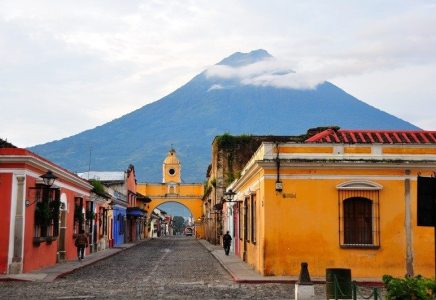
UNWTO: Good tourism practices to advance sustainable development in the Americas
Concrete examples of how to advance sustainable development through tourism take centre stage in the first joint publication between the World Tourism Organization (UNWTO) and the Organization of American States (OAS). ‘Tourism and the Sustainable Development Goals: Good Practices in the Americas’ provides 14 case studies from across the region on why tourism ranks high among the economic sectors better positioned to enable the Agenda 2030 for Sustainable Development and its 17 Sustainable Development Goals.
Ranging from tourism projects to strengthen the peace process in Colombia to initiatives in the heart of the Peruvian Amazon, addressing climate change in Mexico or providing insight into management and sustainability systems in Honduras or Panama. A total of 14 case studies portray the contribution of tourism to advance the Sustainable Development Goals in the Americas.
‘Tourism and the Sustainable Development Goals: Good Practices in the Americas’ recommends to pay critical attention to tourism management as well as to strengthening partnerships between national and international public and private stakeholders, as well as local communities. The report also addresses the emergence of a more responsible traveler and how destinations in the region should integrate resource efficiency and multi-stakeholder involvement in their policies, actions and initiatives.
“With more than 200 million international tourists who traveled to the Americas in 2017, tourism can and must play a significant role in delivering solutions for sustainable development in the region”, said UNWTO Secretary-General, Zurab Pololikashvili. “I am grateful for the partnership with the Organization of American States and am confident that together we will support tourism’s role in the sustainable development agenda of the region up to and beyond 2030”, he added.
According to the Executive Secretary for Integral Development of the OAS, Kim Osborne, this joint effort “provides greater awareness on how tourism can help address poverty alleviation, protect biodiversity and cultural heritage, and support community development in the Americas”.
Authorities at all levels in the Americas have identified tourism as a priority sector to promote economic development and diversification and countries across the region are adopting new legislation and policies in this direction. Against this backdrop, ‘Tourism and the Sustainable Development Goals: Good Practices in the Americas’ provides insight into how a common approach – including policy makers, private sector, tourists and the development community – can catalyze sustainable development through tourism.
The report was presented during the 2018 Inter-American Congress of Ministers and High-level Authorities of Tourism, under the theme ‘Connecting the Americas through sustainable tourism’.
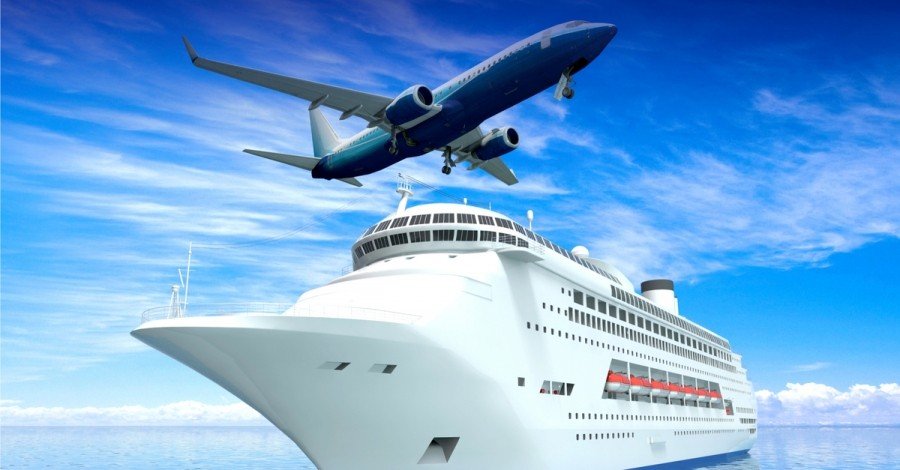
WTTC: One in five of all new jobs created in 2017 are attributable to Travel & Tourism
WTTC’s annual Economic Impact Research, released today, shows that Travel & Tourism was responsible for the creation of 7 million new jobs worldwide. The report also shows that 2017 was a bumper year for the global Travel & Tourism sector, which grew at 4.6%, 50% faster than the global economy as a whole (3% growth during 2017).
Gloria Guevara, WTTC President & CEO said, “Travel & Tourism creates jobs, drives economic growth and helps build better societies. Our research shows that our sector was responsible for the creation of one in five of all jobs globally. In the last few years, Governments around the world are realising the extraordinary benefits of tourism and I congratulate them for taking steps to maximise our sector’s potential.”
For the seventh consecutive year, the Travel & Tourism sector has outperformed the global economy and in 2017 was the fastest growing broad economic sector globally, showing stronger growth than all sectors including manufacturing (4.2%), retail and wholesale (3.4%), agriculture, forestry and fisheries (2.6%) and financial services (2.5%).
In 2017, Travel & Tourism’s direct, indirect and induced impact accounted for:
US$8.3 trillion contribution to global GDP (10.4%)
313 million jobs, 1 in 10 jobs around the world
US$1.5 trillion exports (6.5% of total exports, 28.8% of global services exports)
US$882 billion investment (4.5% of total investment)
Ms Guevara continued, “2017 was the best year on record for the Travel & Tourism sector. We have seen increased spending as a result of growing consumer confidence, both domestically and internationally, recovery in markets in North Africa and Europe previously impacted by terrorism and continued outbound growth from China and India. This is great news for the millions of people who depend on our sector for their livelihoods.”
Highlights from around the world include:
Europe’s performance was better than previously expected with 4.8% growth as long-haul demand recovered strongly, accompanied by strong intra-regional travel thanks to the strength of the European economy. According to the International Air Transport Association (IATA) in 2017, European airlines recorded passenger growth of 8.1% and over 1 billion passengers for the first time.
Travel & Tourism’s contribution to GDP in North Africa grew by 22.6% in 2017, showing a strong rebound from the impacts of terrorism in previous years. Stellar performance from Egypt (72.9%) and solid growth in Tunisia (7.6%) inspire confidence in the region as tourism activity continues to recover to pre-attack levels.
Asian countries continue to drive global tourism growth with North East Asia growing at 7.4% and South East Asia at 6.7%. China continues to lead the way at 9.8%. Over the next ten years over one third of absolute GDP growth and nearly half of employment growth will be generated by China and India.
Latin America showed a decline of 1.4% in tourism GDP, largely a result of a contraction in international spend to the largest Latin American economy, Brazil, of 18.1% compared to 2016, and compounded by the ongoing political and economic problems in Venezuela.
Forecasts for 2018 suggest that growth will continue, albeit at a slower rate than in 2017 as a result of higher oil prices.
The long-term outlook to 2028 remains unchanged, with average growth of 3.8% per year over the next decade. However, by 2028, Travel & Tourism is expected to support more than 400 million jobs globally, which equates to 1 in 9 of all jobs in the world; and the sector is expected to contribute around 25% of global net job creation over the next decade.
Ms Guevara added “As our sector continues to become more important both as a generator of GDP and jobs, our key challenge will be ensuring this growth is sustainable and inclusive. Going forward we need to ensure that growth is planned for, well managed and includes partnerships between not only the public and private sectors but also includes communities themselves. There is a huge potential for governments to capitalise on the opportunities Travel & Tourism brings to create new jobs, especially in those economies where many jobs in other sectors are under threat from automation. Travel & Tourism is the best partner for governments to create jobs.”
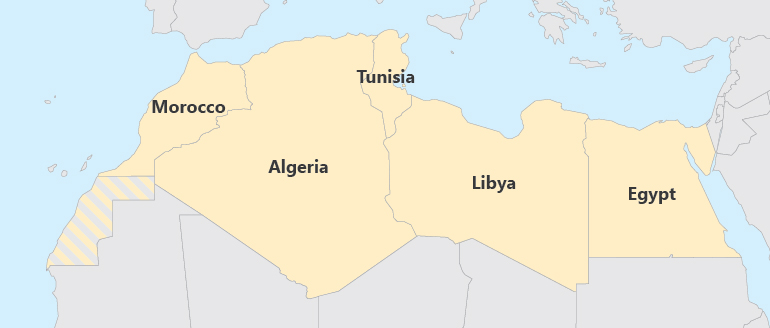
2017 saw significant recovery for tourism in North Africa
Travel & Tourism in countries previously hit by terrorism and political unrest started to show signs of strong recovery in 2017, according to the World Travel & Tourism Council’s (WTTC) latest Economic Impact Report, launched today.
Overall T&T growth in North Africa was 22.6% in 2017, more than three times faster than any other world region and five times faster than the world average of 4.6%. Driving this growth was an excellent recovery in Egypt, where tourism’s contribution to GDP grew by 72.9% compared to 2016; and a strong but more muted recovery in Tunisia of 7.6%. In Turkey, tourism’s contribution grew by 17%.
GDP growth from Travel & Tourism massively outpaced growth in the whole economy in countries previously hit by terrorism. In Egypt the economy grew by 4.1%, in Tunisia by 2% and Turkey by 7.0%). This highlights the sector’s importance in driving economic growth in these countries.
Overall in 2017, Travel & Tourism generated US$21.1 billion of GDP in Egypt (11.0% of total GDP), US$5.7 billion of GDP in Tunisia (14.2% of total) and US$ 98.4 billion in Turkey (11.6% of total); and Travel & Tourism accounted for 8.5%, 13.0% and 7.4% of employment in each country respectively.
With this strong recovery in 2017 and promising forecasts for 2018, particularly as major source markets such as the UK return to the region, with the resuming of charter flights, these countries are well on track to return to pre-crisis levels.
Gloria Guevara, President & CEO of WTTC said, “In a year which has generally seen strong growth in the Travel & Tourism sector, this positive performance in Egypt, Tunisia and Turkey is very encouraging. Our research shows that public and private sector co-operation is key to a destination’s ability to recover from shocks such as terrorist attacks or political unrest, and I encourage the governments of these countries to continue with their engagement with the private sector in pursuit of future sustainable growth.”
“The experience of Egypt, Tunisia and Turkey as well as other countries which have suffered terrorist attacks in recent years, such as France and Belgium which also performed well in 2017, highlights how important it is that as an industry we find the balance between safe, secure and seamless travel. Security is paramount, and it will be vital in coming years that we optimise the use of technology, such as biometrics, to ensure secure and efficient travel, which will ultimately create and protect jobs.”
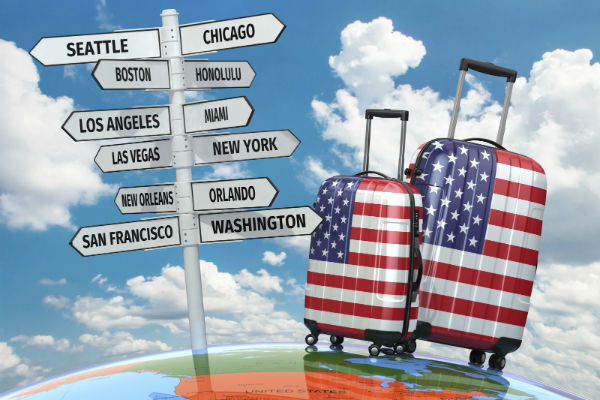
US tourism sector largest in the world, but losing share
The United States’ tourism sector continues to be the largest in the world, according to new research released today by the World Travel & Tourism Council (WTTC). Travel & Tourism generated US$1.5 trillion for the US economy in 2017, more than any other country in the world. US tourism ranks no 1 in the world for GDP contribution, and visitor exports (international tourism spend in the country).
In 2017, Travel & Tourism supported nearly 14 million jobs and over US$200 billion in exports.
Gloria Guevara, President & CEO of WTTC, said “The US has long been a world leader in tourism and remains in the no 1 spot for another year. Travel & Tourism is vital for the US economy, generating economic growth, employment and exports. Our research shows that Travel & Tourism directly supports nearly twice as many jobs as the banking sector, eight times more than the mining sector, and six times more than the automotive manufacturing sector. The tourism sector is the best partner the US can have in creating new jobs”
The data also shows that tourism in the US grew by 2.3% in 2017. This compares to 9.8% growth in China, 6.2% in the United Kingdom, 7% in Spain, and 5.5% in Canada. Global tourism growth outpaced the economy for the seventh year running, growing at 4.6% compared to economy growth of 3%, and significantly outpaced economy growth in many countries. Travel & Tourism grew four times faster than the wider economy in the UK, and twice as fast in Japan and Spain, for example.
However, in the US Travel & Tourism equalled total economy growth.
Guevara continued “The data suggests that the US is not getting its fair share, as other countries are increasing their tourism at a faster rate. This means there is a huge opportunity for the US to grow tourism to increase jobs and exports. The government is ideally placed to tap into this opportunity, by promoting the country so that visitors know that the US is open and welcoming, while being secure.
“The US has a strong foundation with the private sector working well with government, which we applaud and continue to encourage. Its Visa Waiver is being replicated in other countries, so should be protected at home. And the US Global Entry scheme is one of the best in the world – its expansion would encourage visitors, especially high spending business and regular travellers.
